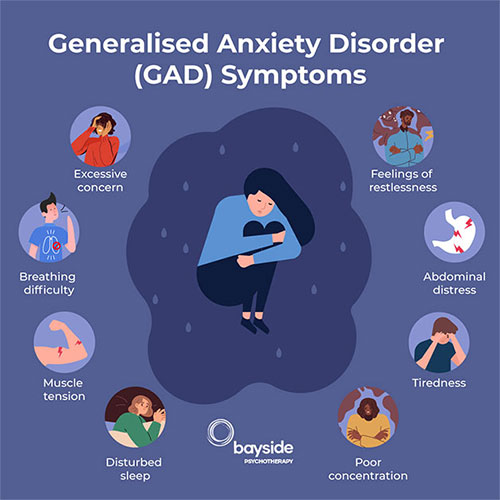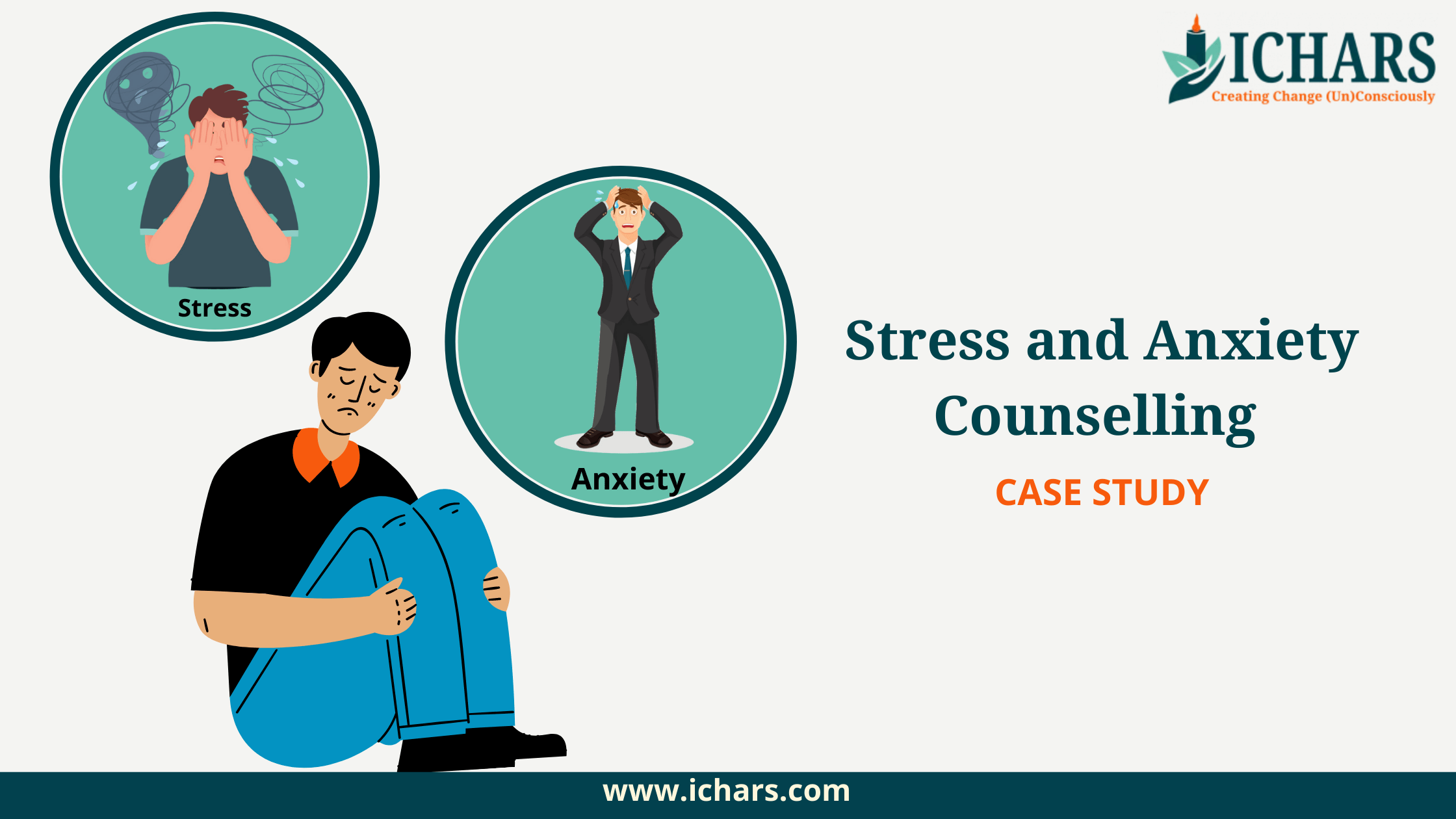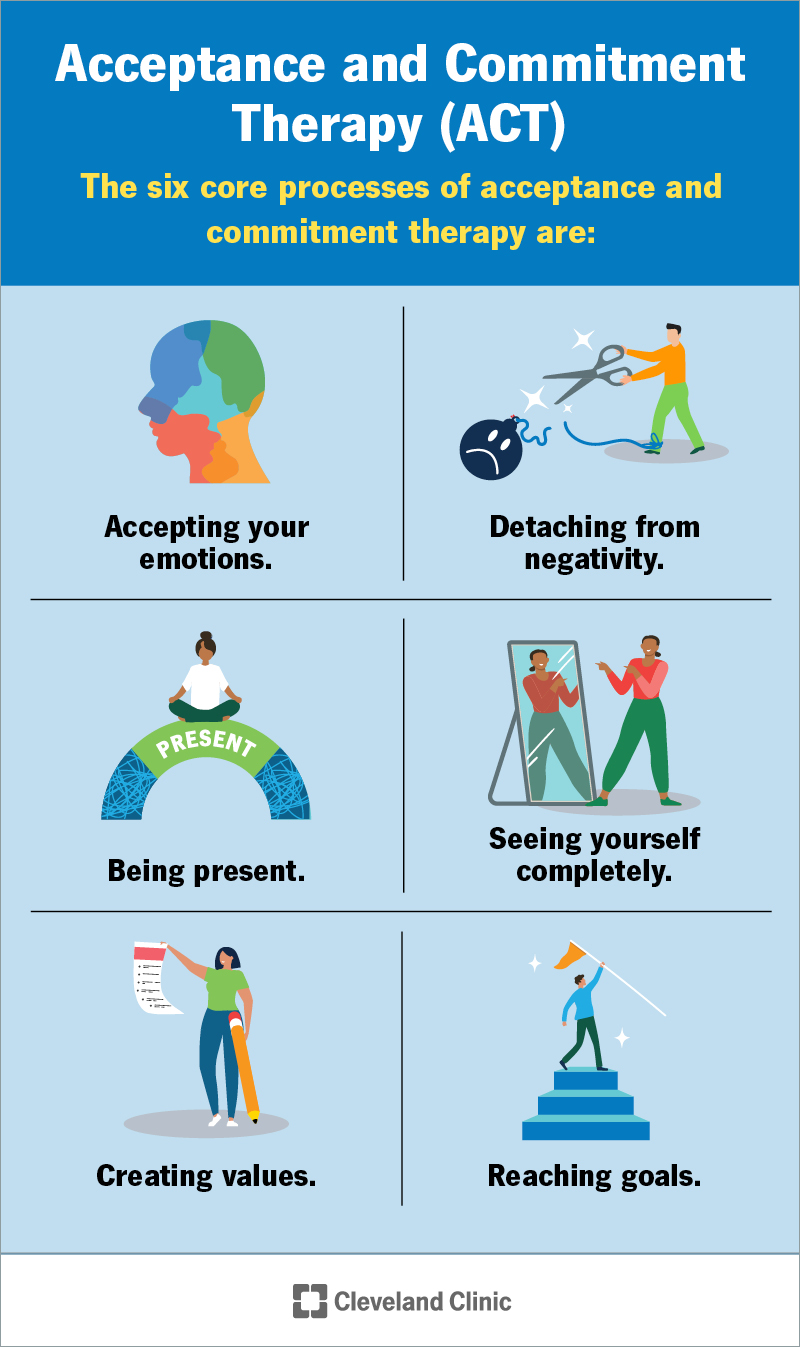Reclaim your mental well-being through effective therapy for anxiety
Discovering Different Approaches in Therapy for Anxiety Disorder for Lasting Modification
When taking on stress and anxiety conditions, it's important to explore a range of therapy approaches. Each method offers special insights and tools to help you handle your symptoms properly. You could locate that integrating methods can generate the most effective outcomes. Nevertheless, recognizing the nuances of these techniques is essential to fostering lasting change. Suppose the best combination could release a new level of emotional well-being for you?
Comprehending Stress And Anxiety Disorders: A Quick Overview
Stress and anxiety problems, which impact millions of individuals worldwide, can significantly influence every day life. You may experience frustrating sensations of anxiety or fret that seem unmanageable. These feelings can lead to physical signs and symptoms like a racing heart, sweating, and even lightheadedness. Typical sorts of stress and anxiety disorders consist of generalised anxiety problem, panic attack, and social stress and anxiety problem. Each has unique indicators, but they all share a tendency to disrupt your routine and relationships.Understanding the origin triggers of your stress and anxiety is crucial. It might come from genes, brain chemistry, or life experiences. Acknowledging your triggers can assist you handle your responses much better. It is essential to keep in mind that you're not alone in this battle. Many people face similar obstacles, and seeking assistance is a strong action toward sensation better. By discovering anxiousness problems, you're already on the course to understanding and managing your problem more properly.
Cognitive-Behavioral Treatment: Testing Unfavorable Idea Patterns
In Cognitive-Behavioral Treatment, you'll start by determining the negative thought sets off that add to your anxiety. When you identify these ideas, you'll service replacing them with even more favorable choices. Together, you'll build effective coping techniques to aid handle your stress and anxiety in day-to-day scenarios.
Recognizing Adverse Thought Triggers

Recognizing the details triggers behind your adverse thoughts can be vital in taking care of anxiousness when you come across moments of distress. Begin by focusing on situations that provoke sensations of concern or concern. Is it a congested space, an approaching target date, or a discussion with specific people? Take down these circumstances in a journal. This will help you identify patterns in your thinking. Notice physical experiences that accompany your unfavorable ideas, like a racing heart or rigidity in your breast. By pinpointing these triggers, you gain understanding into what's sustaining your anxiousness. Understanding these connections is the very first step in challenging those ideas and inevitably reclaiming control over your psychological reactions.
Changing Thoughts With Positives
Testing unfavorable thought patterns is an essential action in changing your attitude and decreasing anxiety. You may commonly find on your own caught in cycles of self-doubt or tragic thinking. Rather than allowing these thoughts dictate your sensations, technique changing them with favorable affirmations or reasonable options. When you believe, "I can not handle this," shift it to, "I can handle difficulties one step at a time." This straightforward change can considerably influence your psychological state. Consistently determining and responding to these negative thoughts aids produce a healthier interior dialogue. Remember, it takes some time and initiative, however regularly practicing this strategy can bring about long-term change, encouraging you to deal with anxiety with renewed confidence and durability.
Building Coping Strategies Together
Changing negative thoughts is only the beginning of managing stress and anxiety successfully. To develop enduring adjustment, you require to develop coping methods that equip you. Cognitive-Behavioral Therapy (CBT) helps you identify and test those unhelpful thought patterns. Together, you and your counselor can discover exactly how these ideas impact your feelings and behaviors.Start by establishing practical methods, like journaling or mindfulness exercises, that allow you to face stress and anxiety head-on. When you face your worries gradually, you'll discover to respond in different ways.

Mindfulness and Acceptance-Based Approaches: Growing Present-Moment Understanding
As you browse the complexities of anxiousness, incorporating mindfulness and acceptance-based approaches can considerably improve your capacity to cultivate present-moment understanding. By focusing on the below and now, you'll discover that you can observe your ideas and feelings without judgment (Counseling services for anxiety). This practice aids you acknowledge your stress and anxiety without really feeling bewildered by it.Engaging in mindfulness exercises, such as deep breathing, body scans, or assisted reflections, allows you to ground yourself in your current experience. Acceptance-based strategies motivate you to welcome your feelings as opposed to deal with versus them. They shed their power over you.Incorporating these practices into your everyday routine can change just how you react to anxiousness when you approve your feelings. You'll develop durability and discover to browse difficult scenarios with better convenience. Inevitably, cultivating present-moment awareness lays the foundation for long lasting change, empowering you to lead a much more satisfying life
Exposure Therapy: Confronting Worries Slowly
Exposure treatment aids you challenge your fears in a progressive means, making it much less frustrating. You'll find out strategies to face anxiety-provoking scenarios detailed, while also developing coping methods to manage your reactions. This approach encourages you to take control and reduce anxiousness over time.
Gradual Direct Exposure Techniques

When facing anxiousness, slowly confronting your anxieties can be a powerful way to restore control. This strategy, understood as gradual exposure, includes slowly revealing yourself to the scenarios or objects that cause your anxiousness. Start with less daunting situations and slowly work your method up to more difficult ones. As an example, if you're scared of public talking, you might start by speaking in front of a mirror, then proceed to sharing thoughts with a close friend, and at some point attend to a tiny group. Each action aids desensitize you to the concern, building your confidence gradually. Keep in mind, it's important to pace yourself and celebrate little victories as you move with this procedure, reinforcing your ability to handle stress and anxiety efficiently.
Structure Coping Methods
Structure reliable coping strategies is vital for handling anxiousness, particularly as you face your concerns progressively - Counseling services for anxiety. One powerful approach is direct exposure treatment, where you start by facing your anxieties in a regulated fashion. Start with less intimidating situations and slowly function your means up to more challenging situations. This progressive direct exposure assists desensitize you to stress and anxiety triggers, making them much less overwhelming.Incorporate leisure strategies, such as deep breathing or mindfulness, to relax your mind throughout direct exposure. Track your development, celebrating small victories along the way to increase your confidence. Remember, it's fine to take your time; the objective isn't perfection but steady renovation. By developing these approaches, you'll equip yourself to navigate anxiousness and welcome life a lot more completely
Psychodynamic Therapy: Uncovering Source of Anxiousness
Psychodynamic treatment explores the unconscious mind, revealing the origin of your anxiety. By analyzing your ideas, sensations, and past experiences, this approach aids you uncover underlying problems and unsolved issues that might add to your existing stress and anxiety. You'll function with a therapist to investigate childhood years experiences, connections, and psychological patterns that form your actions today.As you gain understanding into these deeper layers of your mind, you'll start to identify how previous occasions influence your existing behavior. This understanding can bring about catharsis, enabling you to process feelings you might have suppressed.Through the healing relationship, you can likewise click identify defense reaction that may have created in time, supplying a clearer course to alter. Ultimately, psychodynamic treatment furnishes you with the tools to address your anxiousness at its core, promoting enduring improvement in your emotional wellness.
Holistic and integrative Techniques: Combining Strategies for Greater Efficacy
Incorporating imp source numerous therapeutic strategies can improve your trip towards managing stress and anxiety better. By combining elements from cognitive-behavioral therapy, mindfulness methods, and all natural approaches, you can produce a personalized technique that resolves your special requirements. For circumstances, you may make use of cognitive-behavioral strategies to test negative idea patterns while including mindfulness workouts to ground on your own in today moment.Additionally, discovering alternative practices such as yoga or meditation can promote relaxation and lower anxiety symptoms. This mix enables you to establish greater self-awareness and resilience.Experimenting with these diverse approaches can aid you find what reverberates most with you. Keep in mind, it has to do with discovering a synergy that works, as opposed to sticking to a solitary technique. This integrative method not just uses instant relief yet likewise promotes long-lasting skills for taking care of anxiousness, equipping you to reclaim control over your life.
The Function of Support Systems: Structure Durability Through Connection
While it could seem that managing anxiousness is a solitary journey, having a strong support group can play a crucial duty in your resilience. Bordering on your own with compassionate pals, family, or support system creates a secure area where you can openly share your sensations and experiences. You remind yourself that you're not alone in this struggle.These connections offer support and can provide functional coping techniques that have functioned for others when you attach with others. It's additionally a possibility to acquire viewpoint; buddies can help you see situations in different ways, minimizing feelings of isolation.Moreover, emotional assistance fosters a sense of belonging, which can considerably reduce anxiousness symptoms. By leaning on your support system, you can develop strength and tackle difficulties a lot more efficiently. Bear in mind, connecting for assistance suggests stamina, and it can make all the distinction in your trip towards managing anxiousness.
Regularly Asked Inquiries
What Are the Common Symptoms of Anxiety Problems?
You might experience restlessness, fatigue, difficulty concentrating, irritation, muscular tissue stress, and rest disruptions. Physical signs and symptoms can consist of rapid heartbeat, sweating, and trembling. Acknowledging these indicators early can help you look for proper assistance and treatment.
Exactly How Lengthy Does Treatment Usually Last for Stress And Anxiety Problems?
Therapy for stress and anxiety conditions usually lasts anywhere from a few weeks to numerous months. It actually relies on your private demands, progress, and the strategies your specialist utilizes to help you manage your anxiety efficiently.
Can Medication Be Used Alongside Treatment for Anxiousness?
Yes, medicine can absolutely be utilized alongside treatment for stress and anxiety. Incorporating both strategies often boosts therapy performance, assisting you handle signs and symptoms while exploring underlying concerns with counseling (Counseling services learn this here now for anxiety). Constantly consult your health care supplier for individualized guidance
Are There Self-Help Strategies for Handling Stress And Anxiety?
Yes, there are several self-help methods for taking care of anxiousness. You can practice mindfulness, involve in routine exercise, preserve a well balanced diet, develop a regular, and utilize deep breathing strategies to help in reducing anxiety signs effectively.
Exactly how Do I Know if I Required Expert Aid for Anxiousness?
